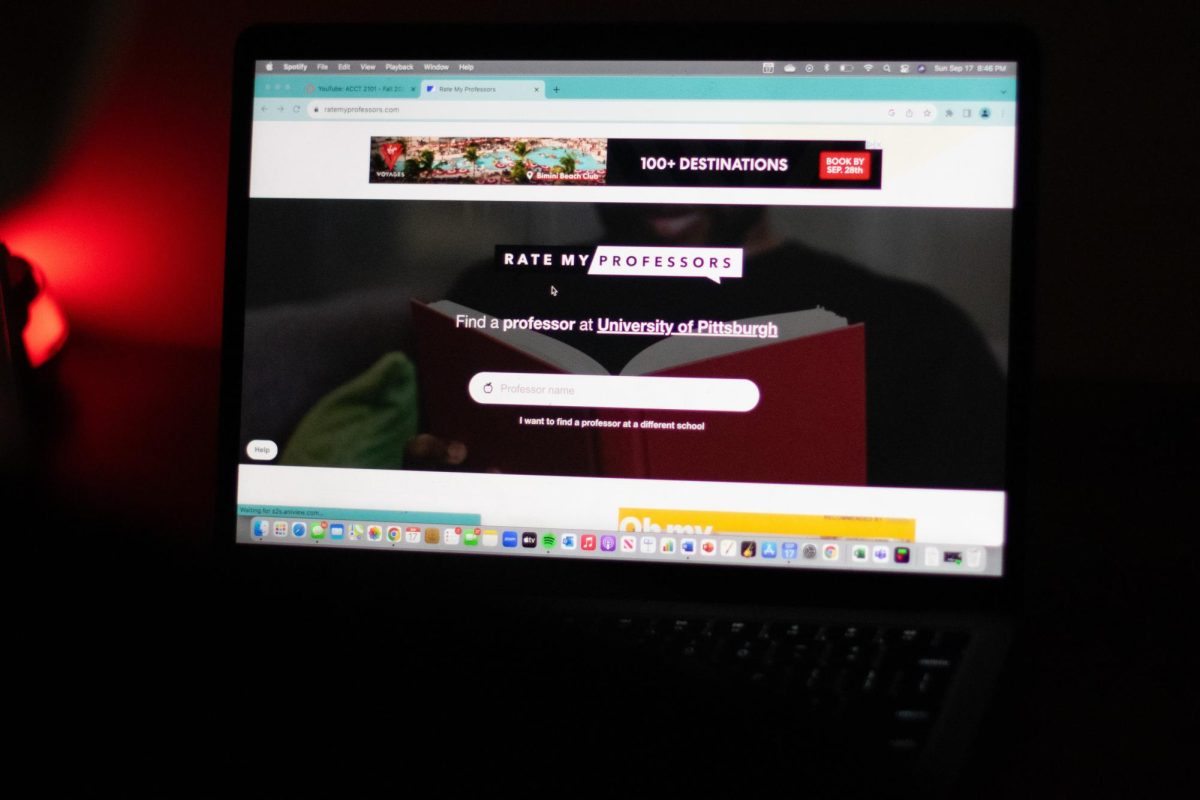David Walton, a professor emeritus of the English department, believes student feedback on sites such as Rate My Professors is an important resource used to reflect professors’ performance.
“I was an undergraduate in the 60s, before student evaluations were common, and have always been a strong believer in their value and influence,” Walton said. “In particular, they have made faculty accountable, and helped weed out those indifferent to student rights.”
Rate My Professors (RMP) is often used by students on college campuses to choose classes, but the website is also a common resource for professors to gain feedback. The site allows students to informally review professors after taking their class, and gives them the option to report whether the professor required a textbook or mandatory attendance. It also allows students to list their final grade in the class and give the professor a numerical rating, with 1 being “awful” and 5 being “awesome.”
Jeffrey Oaks, a professor in the English department with an average rating of 4.5 out of 5, checks his Rate My Professor reviews approximately once a term. He said he finds student RMP reviews to mirror his own beliefs about his performance.
“I think the reviews are generally in line with how I think I’m doing,” Oaks said. “Most see that I’m serious about my subject, creative writing, and that I work hard with students who work hard.”
Oaks said he does not regularly take feedback from Rate My Professors, as he has found little constructive criticism from reviews.
“There’s not a lot of suggestions on RMP,” Oaks said. “It’s usually good, the majority, or angry that I didn’t do something they wanted, one or two. I pay more attention to the OMETs students make out at the end of the term.”
The Office of Measurement and Evaluation of Teaching (OMET) collects midterm and end-of-term student feedback on courses and faculty members through surveys. Approximately 1,700 faculty members across Pitt utilize OMET surveys, according to the OMET website. Unlike Rate My Professors reviews, OMET surveys are collected and reviewed directly by the university, “assisting with comprehensive assessments of teaching effectiveness.”
While both OMET surveys and Rate My Professors reviews are confidential, OMET surveys are made available only for Pitt students enrolled in a particular class by the OMET office. Rate My Professors, however, does not verify the identity of reviewers.
Oaks believes professors writing reviews about themselves to boost performance is morally wrong.
“I’m proud to say I’ve never written a review,” Oaks said. “That seems unethical to me.”
Anna Marsland, a professor in the psychology department with an average rating of 4.6 out of 5, said she never checks her RMP reviews and does not believe in the platform’s credibility.
“I logged on once and read an odd comment about my accent and lost all faith in the platform as a thing of value,” Marsland said.
Walton, who has an average rating of 3.5 out of 5 on the site, currently teaches five-week classes for the over-60 program at the Osher Lifelong Learning Institute, a part of the College of General Studies. He said he checks his comments and ratings on RMP after every class that he teaches.
“I feel that [my reviews] are accurate,” Walton said. “Those responding have their identity guarded, and though my own responses are generally very good, I take very seriously any negative comments and try to adjust my presentations and syllabus to accommodate any criticisms, [as well as] making corrections [and] improvements.”
Walton said formal student reviews are not an entirely new phenomenon, but have been used for many years to evaluate professors.
“In my department, they have always been required as part of every review for retention, advancement, and raises,” Walton said, “as a part of one’s portfolio, along with a class syllabus, a copy of grades, and professional resume.”


